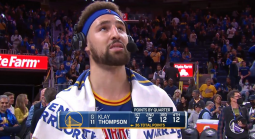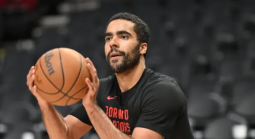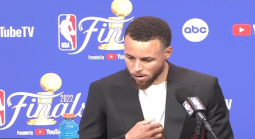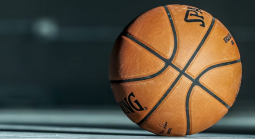Bracket Pools' Popularity Illustrates NCAA's Struggle With Sports Gambling
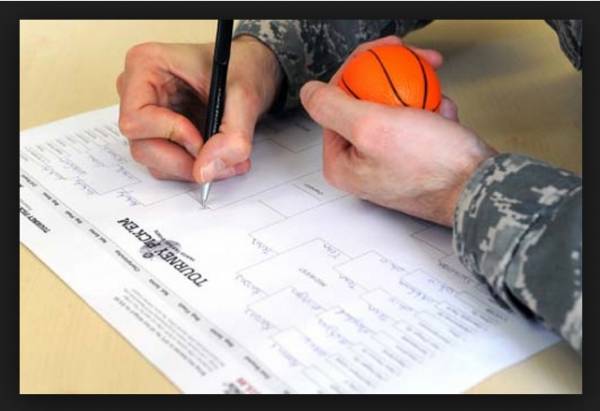
(Associated Press) - For the next three weeks, according to gaming industry estimates, nearly 40 million Americans will gamble more than $2 billion on the outcome of a tournament featuring the nation's best unpaid basketball players.
The tradition starts Sunday evening, with the unveiling of the 68-team NCAA tournament field, and will continue this week in offices across the country. Come Thursday at noon Eastern, when games tip off in earnest, sports bars will fill and Internet streaming capabilities will strain as bettors keep track of their wagers on an event run by a nonprofit organization vehemently opposed to gambling.
The NCAA men's basketball tournament bracket pool is an inimitably American tradition that encapsulates all that is complicated, contradictory and, some say, hypocritical about the cultural and financial heft of sports in our society.
Many have attempted to explain the cognitive dissonance necessary to understand the bracket pool's place in a country where betting on sports is mostly illegal, but perhaps none have done better than 11-year-old Max Kohll of Omaha, Nebraska.
In 2012, Kohll ended up in the principal's office after he was caught with brackets and cash at his elementary school. In an interview with the local newspaper, the befuddled fifth-grader, whose mother had approved of her son's first foray into gambling and even paid his $5 entry fee, tried to explain what he'd learned.
"It's not okay to gamble," Kohll said. "It's, like, illegal, sort of."
Kohll's confusion is understandable. Even the people who put on the NCAA men's basketball tournament have long struggled with the widespread, condoned gambling that fuels much of the interest in their annual spectacle.
"The NCAA opposes all forms of gambling — legal and illegal — on college sports," the official policy states, and it even goes so far as to define gambling as "putting something at risk — such as an entry fee or wager — in return for the opportunity to win something."
Over the years, not everyone involved in staging the tournament has taken such a dogmatic stance. Former University of Kansas athletic director Bob Frederick, who once chaired the tournament's selection committee, in 1995 tried to explain why he thought tournament pools aren't really sports gambling.
"Most people who fill out office pools do that once a year and that's it. It's different than placing a bet on a game," said Frederick, who died in 2009. "They're taking a chance on a team."
Which, some might note, is essentially the definition of sports gambling.
It wasn't always this way. Before the 1980s, the word "bracket" appeared in newspapers mostly in reference to tax classifications, and the only office pools anyone wrote about involved National Football League games and required participants to understand the vagaries of the point spread. Then, in 1979, the NCAA basketball tournament leapt in national prominence, thanks to the championship game between Magic Johnson's Michigan State Spartans and Larry Bird's Indiana State Sycamores, still the highest-rated television broadcast in the event's history.
Nationally televised broadcasts always have fueled betting interest on those sporting events, said gambling historian David Schwartz, and in 1985, the NCAA added an accelerant: The tournament expanded that year to 64 teams, a number that allowed for a geometrically enticing, aesthetically pleasing bracket.
"The pureness of the 64-team, single-elimination bracket allowed everyone to participate, because it was really, really simple," said Tim Otteman, a Central Michigan University assistant professor who has studied the tournament and problem gambling.
If newspaper coverage is any indication of cultural permeation, the March Madness office pool exploded from niche practice to national tradition in about a decade. A search of a database of U.S. newspaper archives found zero stories referring to tournament office pools before 1980, 23 stories in the 1980s, 760 stories in the 1990s, and more than 3,000 in the 2000s.
Today, stories about the popularity and financial impact of the office pool are a staple of annual March Madness news coverage, along with stories marveling at the tournament's spiraling television revenue (1980: $9 million, 1990: $64 million, 2000: $228 million, 2010: $634 million).
And while the tournament office pool is outlawed in much of the country, it is a crime roughly equivalent to driving 60 mph in a 55-mph zone.
"Technically, it is a violation of state and federal law, but it's so socially accepted that I've never heard of a situation where there's been punitive action taken by a law enforcement agency over an office pool," said Steven Silverman, former public defender and managing partner of Silverman Thompson Slutkin White, a Baltimore-based law firm.
Silverman mentioned a name that comes up often in discussions about the contradictions surrounding office pools and the NCAA: Rick Neuheisel. The former football coach was fired by the University of Washington in 2003, in part because his basketball tournament betting prompted an NCAA investigation. Neuheisel wasn't participating in the standard $10 entry office pool, though: He'd won more than $10,000 in a high-stakes auction form of betting on the tournament called a "Calcutta."
Although the regular pick-all-the-games office pools are mostly tacitly condoned by law enforcement, there have been situations in which police have broken out the metal bracelets for organizers of the gambling contests.
In 1992, police in East Greenwich, Rhode Island, arrested Robert Plain, 18, on a misdemeanor charge of possession of gambling paraphernalia. The crime? Plain, a high school senior, had been passing out brackets in homeroom.
These stories of youngsters betting on the tournament concern Otteman, the Central Michigan professor. He contends that brackets are the "gateway drug" of sports gambling, giving children the first rush that can lead to addiction. Otteman credits the NCAA's anti-gambling publicity and education campaigns, but he is still bothered every year when the organization, on its website, provides printable brackets that are inevitably used for gambling.
"That's where it goes sideways to me," Otteman said. "It's a very hypocritical stance, in terms of fighting against legalization but still profiting from the popularity of the brackets."
The stance likely won't change. On Tuesday, in a federal courtroom in Philadelphia, attorneys for the NCAA will continue the fight to keep sports betting illegal. A hearing is scheduled that day in a case between the NCAA, professional sports leagues and the state of New Jersey, which has been trying to legalize sports betting for years.
Meantime, on Monday morning, many federal employees will be reminded that their standards of conduct prohibit them from participating in any gambling activity while on duty or on government property. And if they have ESPN, they can watch live later this week as President Barack Obama fills out his bracket.









